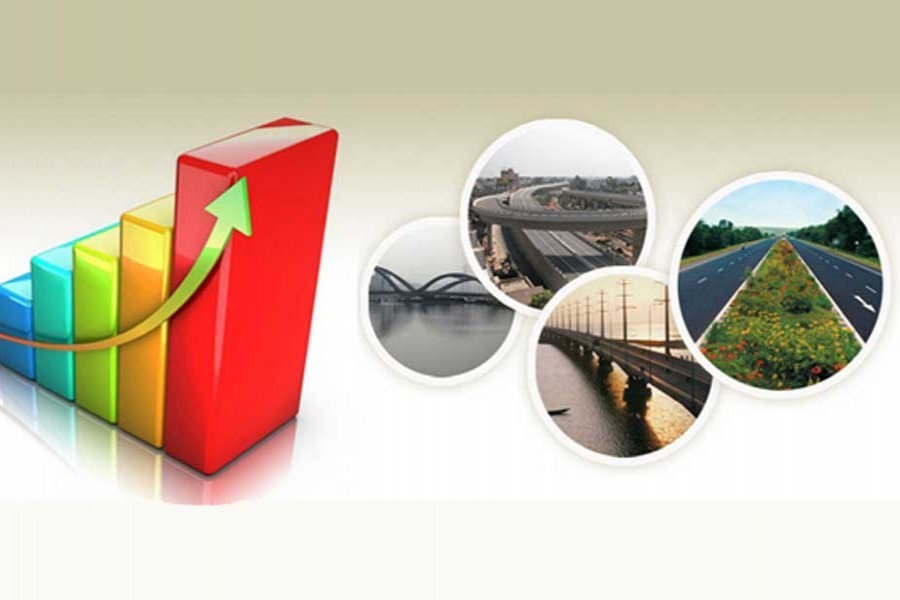Bangladesh needs a comprehensive urbanisation policy along with formulation of a dedicated institution to deal with urbanisation-related challenges in the context of climate change, experts said on Thursday.
The global warming-induced impacts would create multi-pronged strains for the country in the coming days - enhancing the flow of migrated people to major cities from coastal regions. Thus, it would raise the demand for jobs, housing, transportations and other necessary services, they added.
A proper urbanisation policy would help deal the challenges by ensuring equal distribution of economic and social opportunities, according to them.
The suggestions came from a technical workshop - "Getting Urbanisation Right in Bangladesh" - jointly hosted by the Bangladesh Institute of Development Studies (BIDS) and the World Bank (WB).
BIDS Director General (DG) Dr. Binayak Sen chaired the event.
In a presentation, Dr. Forhad Shilpi, senior economist in the sustainability and infrastructure team of development research group - the WB, said the urbanisation that took place in the last few decades remained unstructured and mainly concentrated in Dhaka and Chattogram.
But the latest evidence showed that the urbanisation process has slowly been spreading across other areas of the country.
"But there are two major concerns - how the country can spread it in a more productive way, and handle the climate challenge-related effect."
She noted that climate change would force many people in coastal regions to migrate to urban areas, which would cause congestion and raise demand for housing and connectivity.
"To address these challenges, a proper urbanisation policy along with effective urban institutions is required," she added.
The BIDS DG said the share of urban population increases naturally with a country's economic growth. It also happened in case of Bangladesh, as the share of urban population was only 5.0 per cent in 1974, and now it crossed 40 per cent.
In the context of urbanisation, climate change has been causing two major challenges - migration from the country's vulnerable southern parts to the northern areas, and adaptation.

"We need to think how the pattern of urbanisation in the northern cities will be. Many people will not migrate and stay there. So, we need to give more attention to adaptation."
The rural economy would be affected unless the urbanisation in the smaller cities or towns outside the major cities takes place in a planned way, Mr. Sen added.
Citing the Delta Plan 2100, urban planning expert Professor Nazrul Islam said the government identified six hotspots, and one of those was urbanisation.
"There is no officially-accepted policy yet. If the government follows a proper urbanisation policy, there will be more equitable distribution of economic and social opportunities," he opined.
Citing a media report, former finance minister M Syeduzzaman said the average longevity of people here is being cut by three years because of climate change and poor air quality.
He suggested the policymakers to deal the relevant challenges properly, and make planned urbanisation with equitable distribution of resources.
Economist Mohiuddin Alamgir focused on empowering local government bodies that would be able to provide necessary services and create a congenial environment.
He also emphasised apt governance on land use for ensuring proper use of the existing land in a planned way.
Dr Ashikur Rahman of Policy Research Institute of Bangladesh focused on institutional development for dealing the important issues related with urbanisation.


